Emotional Intelligence Worksheets Results
Emotional Intelligence: Skill Building - Florida State University
Emotional Intelligence: Skill Building Emotional intelligence is the ability to understand your own emotions as well as others. Emotional intelligence is important to effectively manage behavior, to navigate social situations, and to make personal decisions. Emotional intelligence is made up of four core skills
https://url.theworksheets.com/7hm2129 Downloads
Preview and Download !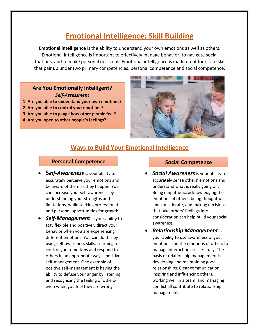
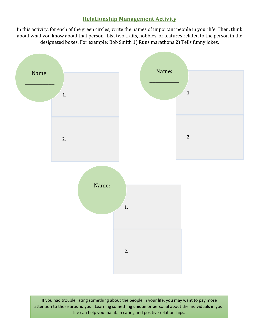
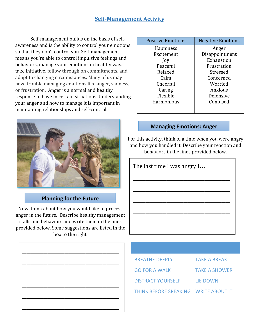
Emotional Intelligence: How to Increase Your EI
The Five Areas of Emotional Intelligence. The ability to know one's emotions, strengths, weaknesses, drives, values and goals and recognize their impact on others while usinggut feelings to guide decisions. #1 - Self-Awareness. The Five Areas of Emotional Intelligence.
https://url.theworksheets.com/7i0415 Downloads
Preview and Download !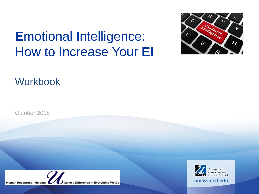
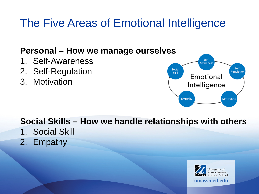
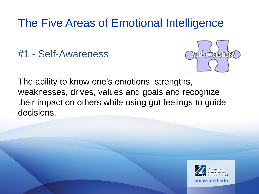
Mini Emotional Intelligence Test and Workbook - BEMA
do that, we recommend that you take the Emotional Quotient Inventory (EQ-i) 2.0, the validated and most widely-used emotional intelligence evaluation in the world. You can then obtain feedback on your results from a qualified, certified emotional intelligence professional. Visit our website and online store for more information.
https://url.theworksheets.com/7hy839 Downloads
Preview and Download !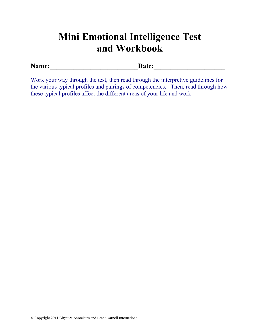
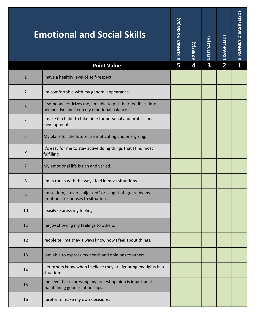
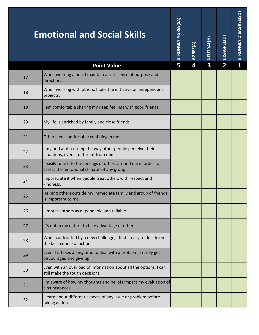
The Four Emotional Quotient (EQ) Skills - Washington State University
Mastering Mentoring and Coaching with Emotional Intelligence by Patrick E. Merlevede and Denis C. Bridoux Skill Briefs Skills that Enhance Emotional Intelligence (ID: COMM0141) Emotional Intelligence and Life Success (ID: COMM0141) Emotional Intelligence Abilities (ID: COMM0142) Emotional Intelligence and External Consulting (ID: CONS0111 ...
https://url.theworksheets.com/7hj778 Downloads
Preview and Download !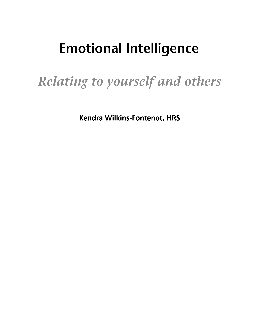
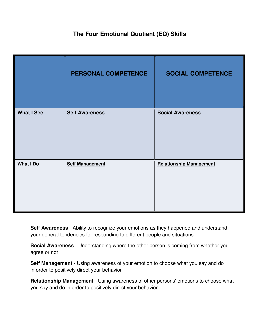
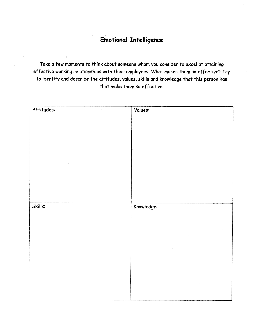
EMOTIONAL INTELLIGENCE: A GUIDE TO HOW IT WORKS
The Benefits of Emotional Intelligence at Work On the job, people with higher emotional intelligence excel at: • Staying calm under pressure • Resolving conflict effectively • Behaving with empathy • Leading by example • Those with high levels of Emotional Intelligence delegate more effectively and more emphatically
https://url.theworksheets.com/4w9f258 Downloads
Preview and Download !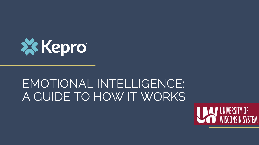

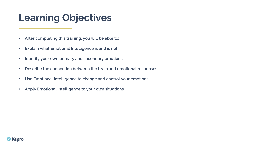
EMOTIONAL INTELLIGENCE SELF-ASSESSMENT TOOL - NODC
Emotional Intelligence is learnable and developmental. Use feedback from others, mentoring within your organization or friendship circles, and books and seminars to develop in those areas. (Adapted from Emily A. Sterrett, Ph. D., in The Manager’s Pocket Guide to Emotional Intelligence, 2000, HRD Press:
https://url.theworksheets.com/7kd523 Downloads
Preview and Download !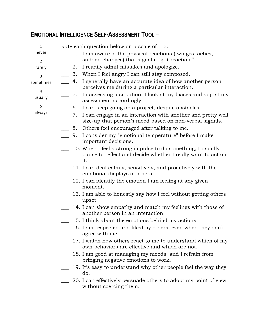
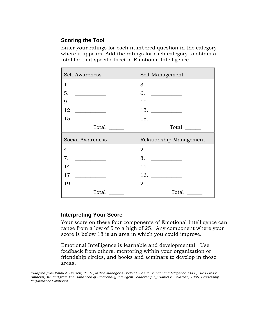

50 Activities for Developing Emotional Intelligence - روان حامی
50 Activities for Developing Emotional Intelligence • Working with Emotional Intelligence, by Daniel Goleman • Executive EQ, Emotional Intelligence in Leadership and Organizations, by Robert K. Cooper and Ayman Sawaf • How to Be a Star at Work, by Robert E. Kelley And for understanding of the impact of emotional intelligence on workers and
https://url.theworksheets.com/1cju310 Downloads
Preview and Download !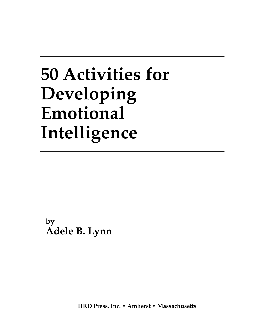
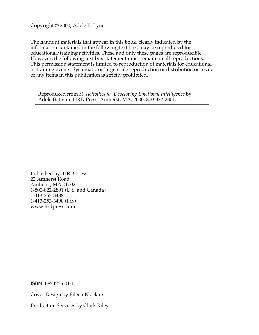
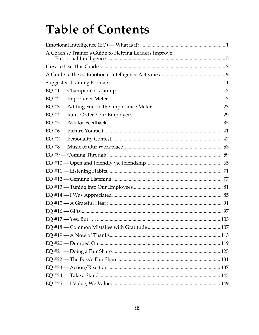
Understanding and Developing Emotional Intelligence
emotional intelligence theory helps. In the most generic framework, five domains of emotional intelligence cover together personal (self-awareness, self-regulation, and self-motivation) and social (social awareness and social skills) competences.5 They are • Self-Awareness (i) Emotional awareness: Recognizing one’s emotions and their effects.
https://url.theworksheets.com/2t5w538 Downloads
Preview and Download !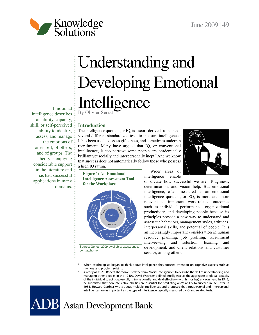
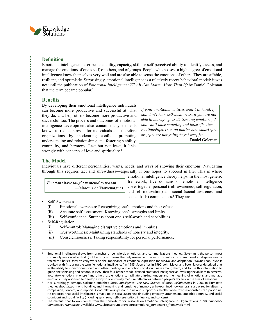
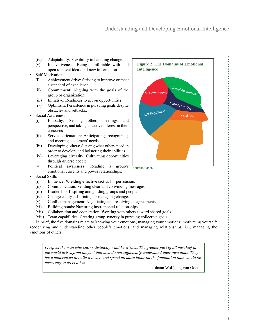
Emotional - University of Colorado
1 Learning Objectives The participants will be able to: Recognize and discuss the four foundational areas of emotional intelligence Explain the personal and professional benefits of emotional intelligence Discover areas of opportunity for growth in emotional intelligence Anyone can get angry — that is easy. But to do this to the right person, to the right
https://url.theworksheets.com/1cjp136 Downloads
Preview and Download !
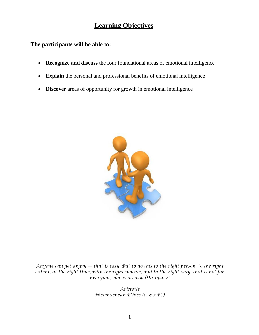
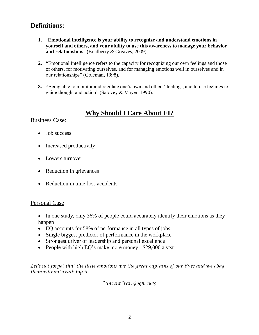
Emotional Intelligence Activities - Associated Skin Care Professionals
This activity was adapted from Quick Emotional Intelligence Activities for Busy Managers by Adele B. Lynn. American Management Association. Introduction: Students donÕt always realize that bad moods are contagious and that one very stressed-out student can impact the classroom experience of everyone. This is a good
https://url.theworksheets.com/7ho277 Downloads
Preview and Download !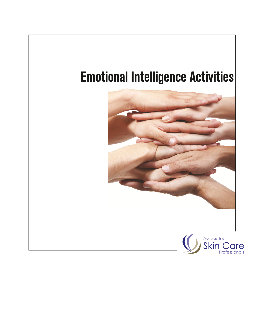
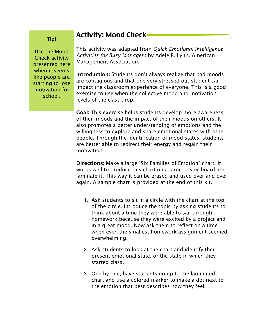
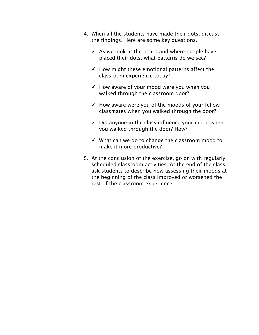
Next results >>